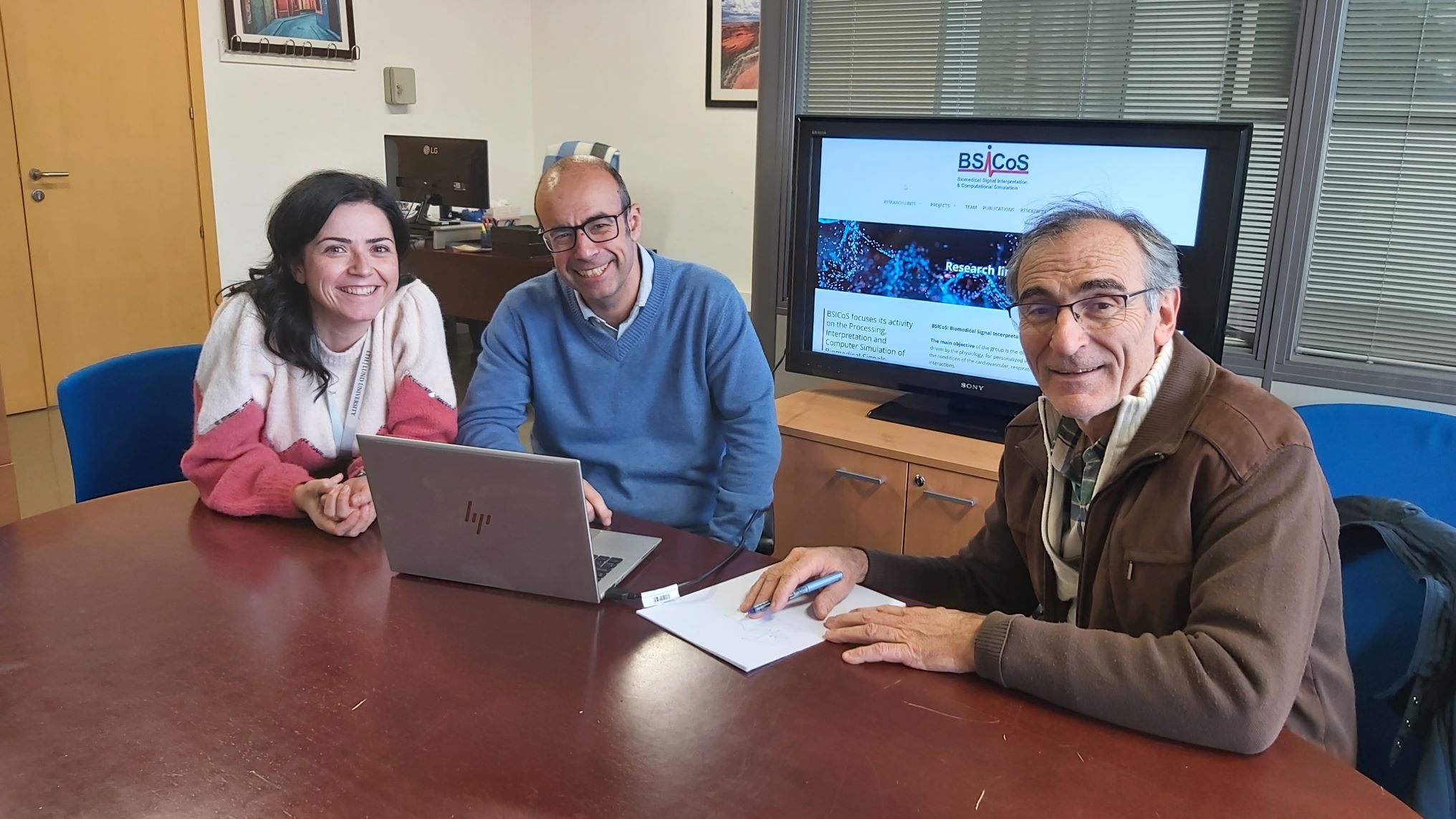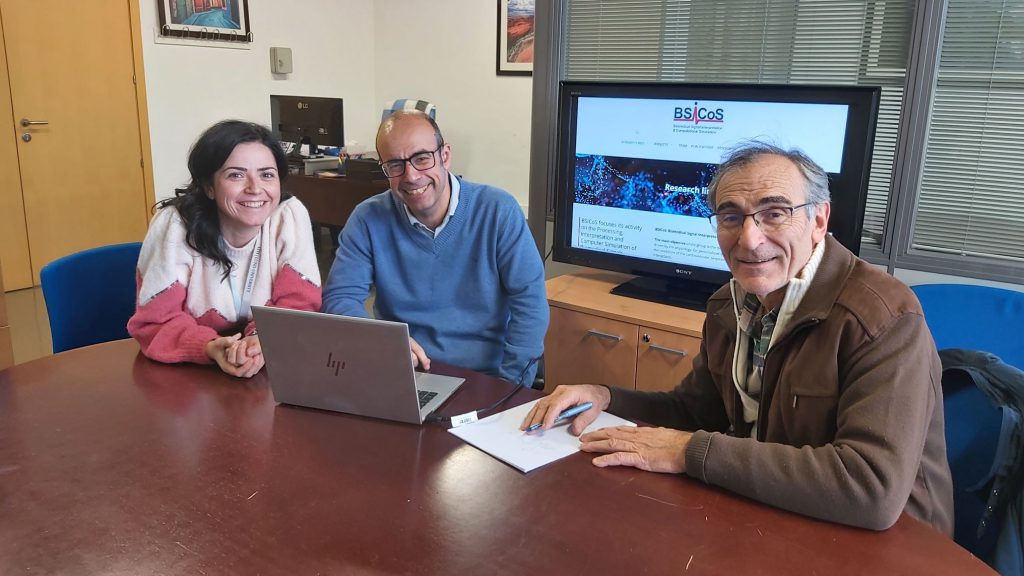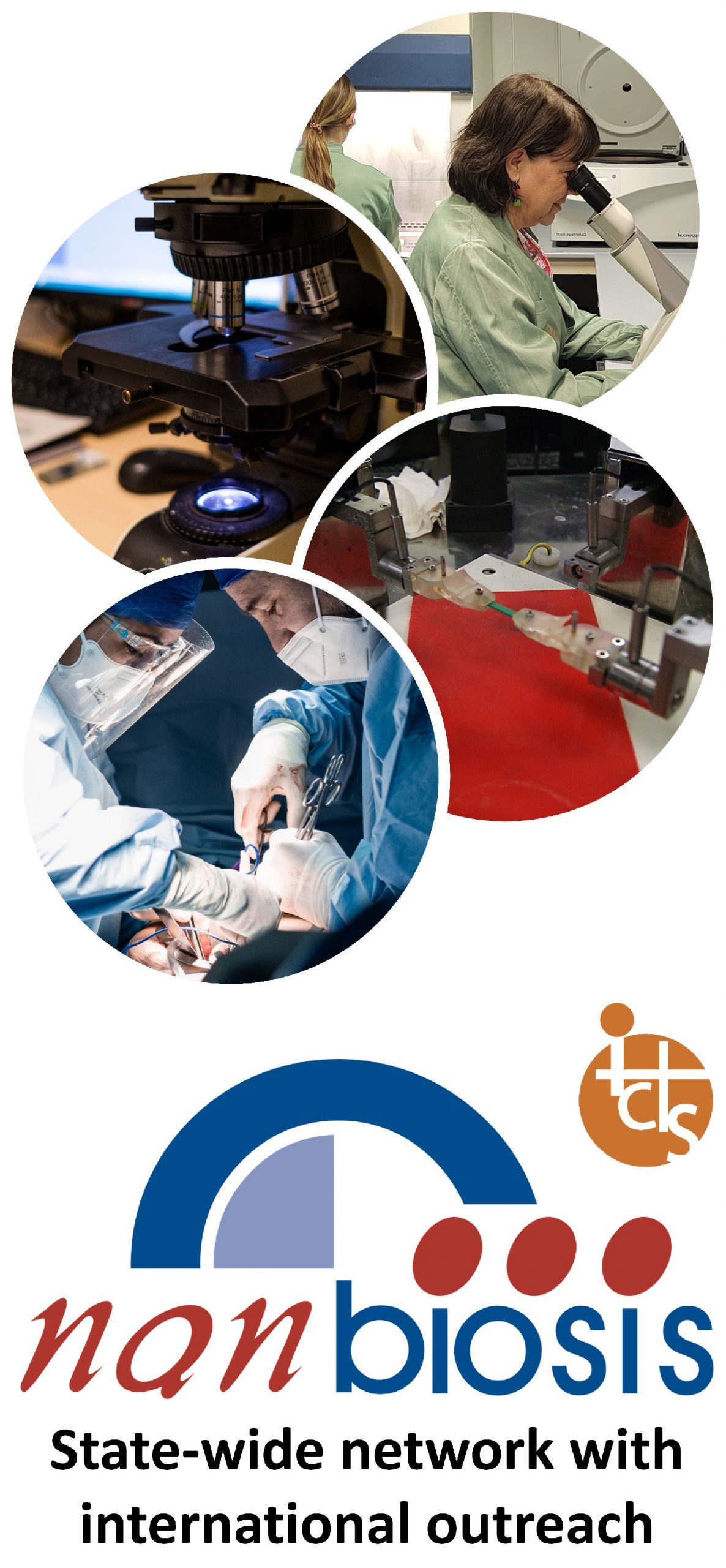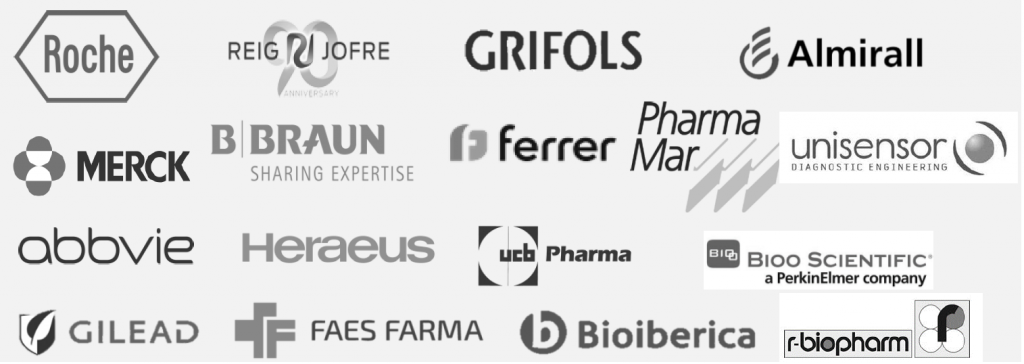
The BSICoS research group (Unit 27 of NANBIOSIS) shared 4 years of heart failure data from 1,000 patients on the Physionet portal for scientific use.
Zaragoza, December 2024. The BSICoS research group (Biomedical Signal Interpretation and Computational Simulation) from the Aragón Institute of Engineering Research (I3A), in whcih the Unit 27 of NANBIOSIS is located, has shared a clinical database containing information from 992 heart failure patients. These patients underwent a 24-hour electrocardiogram (ECG) recording and were monitored over a four-year period. This dataset enables advancements in research on predicting the risk of sudden cardiac death using Holter monitoring data.
The Sudden Cardiac Death in Heart Failure (MUSIC) multicenter study, involving eight hospitals across Spain, was designed to evaluate risk indicators for cardiac mortality and sudden cardiac death in individuals with chronic heart failure.
“[The study serves] to develop prognostic models to predict the risk of sudden death and cardiac death, apply the technologies we had, and seek new markers to improve the identification of high-risk patients for potential defibrillator implantation.”
Alba Martín Yebra, BSICoS research group
The initial goal of the project was “to develop prognostic models to predict the risk of sudden death and cardiac death, apply the technologies we had, and seek new markers to improve the identification of high-risk patients for potential defibrillator implantation,” explains Alba Martín Yebra, a researcher from the BSICoS group.
The MUSIC database includes 24-hour Holter recordings, high-resolution ECG data, and clinical data from blood analysis, echocardiography, chest X-rays, and prescribed medications. The database is available on www.physionet.org, an open-access platform managed by the Massachusetts Institute of Technology (MIT) that hosts databases and open-source software for research purposes.
The work describing this database was presented at the latest edition of the “Computing in Cardiology” scientific conference held in Karlsruhe, Germany, where it garnered significant interest from researchers. “In our research group, working with this data allowed us to develop and validate new biomarkers for predicting sudden cardiac death. That’s why we decided to share it with the scientific community so that other groups can use it to validate and reproduce results in their research lines,” notes Alba Martín. Additionally, it serves as an invaluable testing ground for evaluating algorithms based on deep learning or artificial intelligence.
The MUSIC study has been utilized in various works. According to Alba Martín, the dataset “is a valuable resource for developing and evaluating a wide range of non-invasive prognostic biomarkers derived from the ECG.” One aspect that makes it particularly interesting is the four-year follow-up period, which documents patient evolution after data collection.
Specifically, the BSICoS group has evaluated parameters based on heart rate turbulence, T-wave morphology, and its dependence on heart rate. These parameters were assessed for predicting mortality due to arrhythmias and the progression of heart failure, proving to be powerful risk predictors.
Finally, MUSIC has served as proof of concept for developing new signal processing techniques for atrial fibrillation, an area where the BSICoS group has been a pioneer.
Access to the MUSIC database: https://physionet.org/content/music-sudden-cardiac-death/1.0.0/

This article was written by Melania Bentué – I3A Communications and translated by the NANBIOSIS team.
What is NANBIOSIS?
The goal of NANBIOSIS is to provide comprehensive and integrated advanced solutions for companies and research institutions in biomedical applications. All of this is done through a single-entry point, involving the design and production of biomaterials, nanomaterials, and their nanoconjugates. This includes their characterization from physical-chemical, functional, toxicological, and biological perspectives (preclinical validation).
Leading scientists
The main value of NANBIOSIS is our highly qualified and experienced academic scientists, working in public institutions, renowned universities and other research institutes.
Custom solutions
Designed for either scientific collaboration or the private industry, we adapt our services to your needs, filling the gaps and paving the way towards the next breakthrough.

Cutting-Edge facilities
Publicly funded, with the most advanced equipment, offering a wide variety of services from synthesis of nanoparticles and medical devices, including up to preclinical trials.
Standards of quality
Our services have standards of quality required in the pharmaceutical, biotech and medtech sectors, from Good Practices to ISO certifications.
In order to access our Cutting-Edge Biomedical Solutions with priority access, enter our Competitive Call here.
NANBIOSIS has worked with pharmaceutical companies of all sizes in the areas of drug delivery, biomaterials and regenerative medicine. Here are a few of them:









